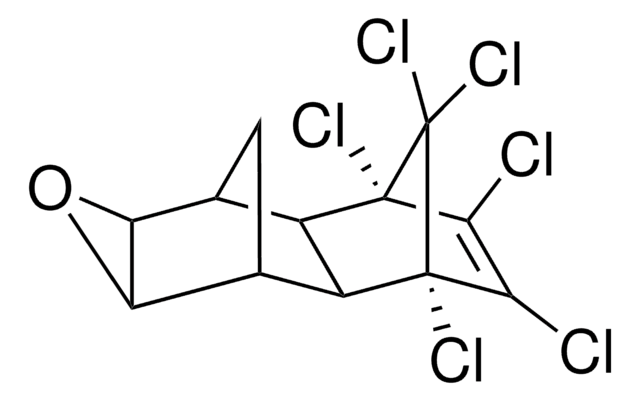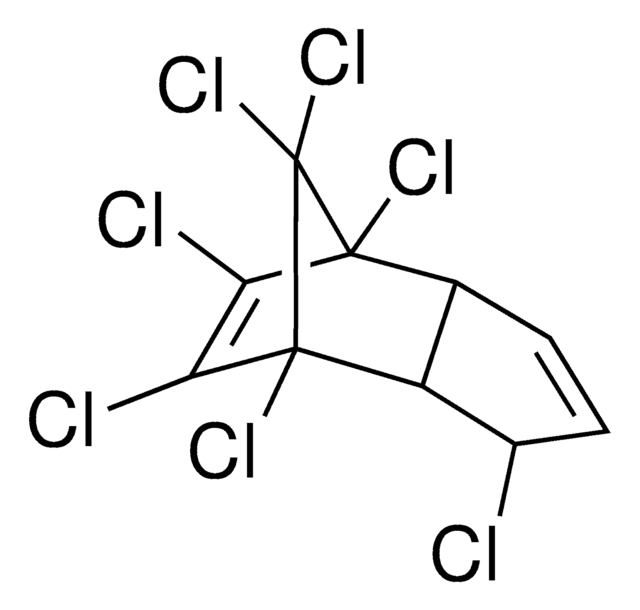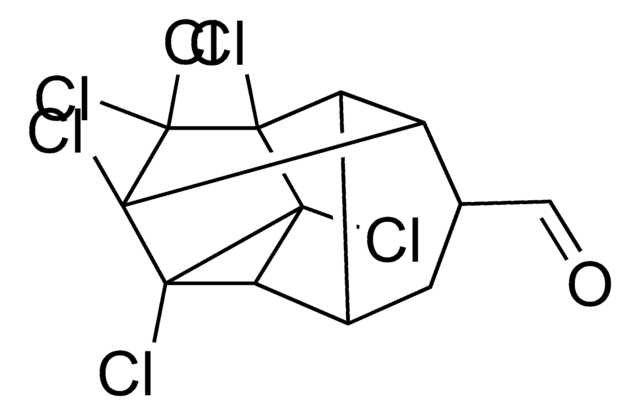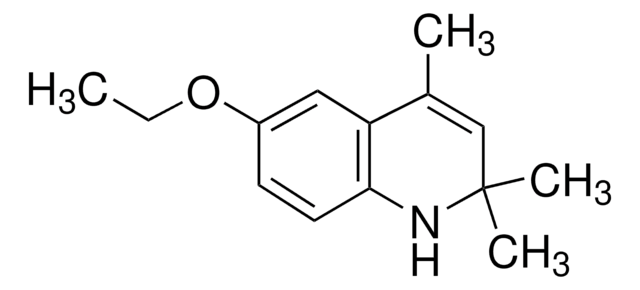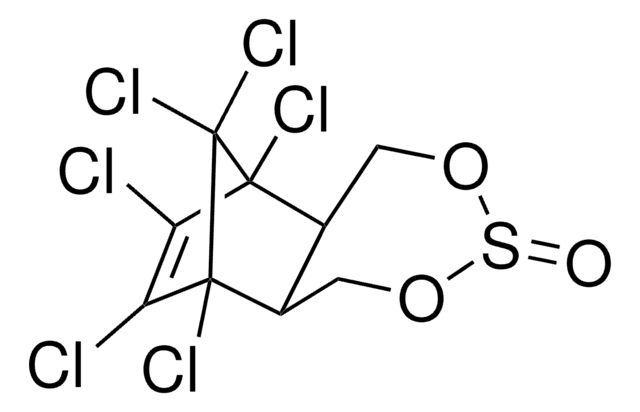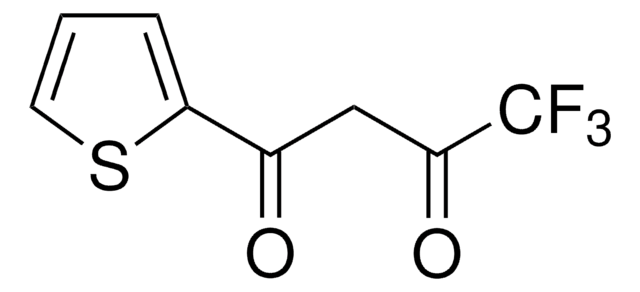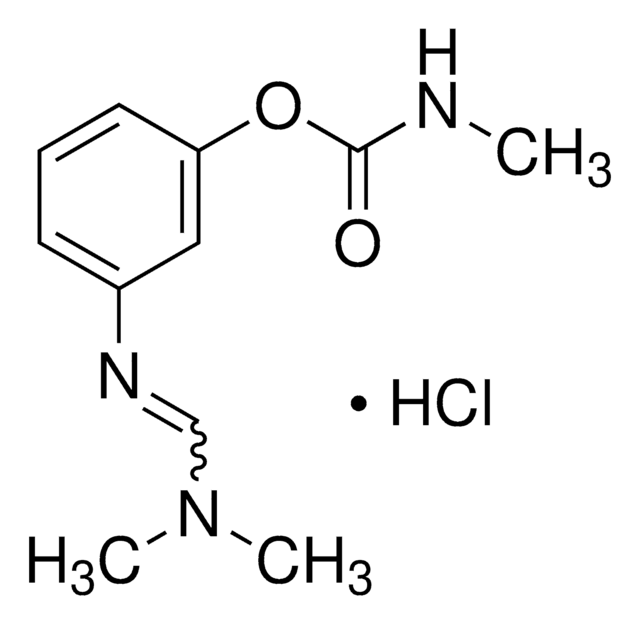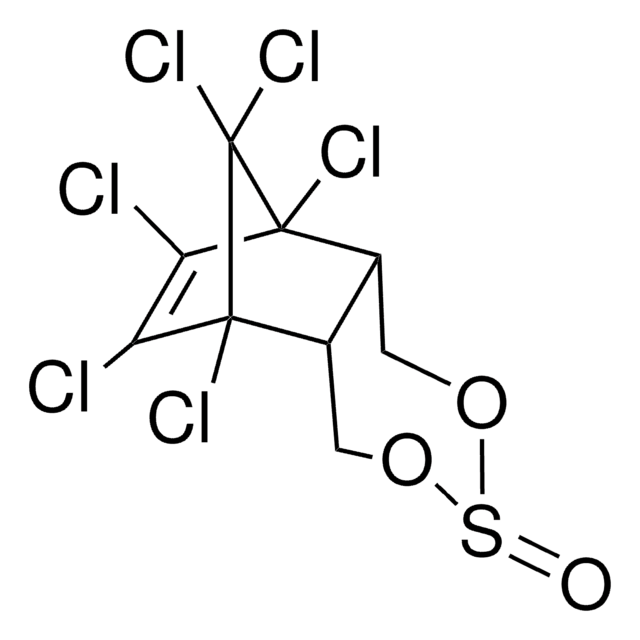About This Item
Recommended Products
grade
analytical standard
Quality Level
product line
PESTANAL®
CofA
current certificate can be downloaded
packaging
ampule of 25 mg
technique(s)
HPLC: suitable
gas chromatography (GC): suitable
application(s)
agriculture
format
neat
storage temp.
2-30°C
SMILES string
Cl[C@@H]1[C@@]2(Cl)[C@H]3[C@@H]4C[C@@H]5[C@H]3[C@](Cl)(C2(Cl)Cl)[C@@]1(Cl)[C@@H]5C4=O
InChI
1S/C12H8Cl6O/c13-8-9(14)6-2-1-3(7(6)19)4-5(2)11(9,16)12(17,18)10(4,8)15/h2-6,8H,1H2/t2-,3+,4+,5-,6+,8+,9-,10+,11-/m1/s1
InChI key
IZHZFAQWVKBTSL-YTMKBKNTSA-N
Looking for similar products? Visit Product Comparison Guide
Related Categories
General description
Application
Legal Information
Not finding the right product?
Try our Product Selector Tool.
Signal Word
Danger
Hazard Statements
Precautionary Statements
Hazard Classifications
Acute Tox. 2 Oral
Storage Class Code
6.1A - Combustible acute toxic Cat. 1 and 2 / very toxic hazardous materials
WGK
WGK 2
Flash Point(F)
Not applicable
Flash Point(C)
Not applicable
Personal Protective Equipment
Regulatory Listings
Regulatory Listings are mainly provided for chemical products. Only limited information can be provided here for non-chemical products. No entry means none of the components are listed. It is the user’s obligation to ensure the safe and legal use of the product.
JAN Code
442579:
Choose from one of the most recent versions:
Already Own This Product?
Find documentation for the products that you have recently purchased in the Document Library.
Our team of scientists has experience in all areas of research including Life Science, Material Science, Chemical Synthesis, Chromatography, Analytical and many others.
Contact Technical Service